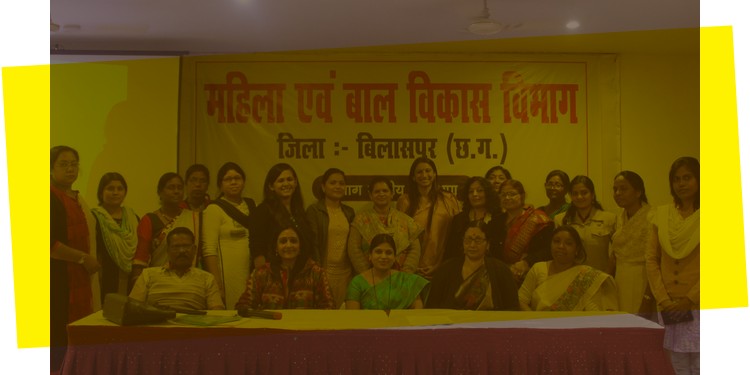What every State Govt. should know about constituting Local Complaints Committee

An Internal Complaints Committee (“ICC“) is the first body that aggrieved parties can approach in the event of a complaint filed under the Prevention of Sexual Harassment of Women at Workplace Act, 2013 (“Act“). However, not all organisations are required to constitute an Internal Complaints Committee. In the event that a particular organisation has fewer than ten workers, it is not mandatory for the employer to build an ICC. In case an aggrieved party wishes to lodge a complaint under this Act, and there is no ICC in her organisation, she must so the same at the Local Complaints Committee (“LCC“) constituted in her district. Thus, the LCC is a vital body, as it is the first redressal body available to employees in workplaces with fewer than ten members.
The functioning of the LCC is, in a way, very similar to that of the Internal Complaints Committee. However, the people who are chosen to be a part of the LCCs need to be selected based on different criteria. An LCC would have to hear complaints from multiple workplaces and for that reason, it is much more vital that the members of the LCC maintain an objective approach in dealing with the cases that are brought before them.
Criteria for Members of LCC as per the Act
According to the Act, an LCC should comprise of at least five members. Out of these five members, at least three should be women. The following criteria are laid down for the appointment of members to the LCCs
- Every LCC is to have a Chairperson, who is to be nominated from amongst the eminent women in the field of social work and committed to the cause of women.
- One member is to be nominated from the women who work in a block, taluka, tehsil, ward or municipality in the district.
- Two members, of whom at least one should be a woman, who are nominated from among such non-governmental organisations or associations committed to the cause of women or persons who are familiar with the issues of sexual harassment.
- At least one of the persons nominated should, preferably have a background in law or legal knowledge.
- At least one of the nominees shall be a woman who belongs to a Scheduled caste/ Scheduled Tribe/ Other Backward Caste or minority community notified by the Central Community.
- The concerned officer dealing with the social welfare or women and child development in the district is an ex-officio member of the Committee. (this means that the membership is by office and not by person- any officer who will be occupying the office/department of social welfare/women and child development- shall be a member of the LCC)
Mandatory duty of the District Officer in constituting LCC
The duration for which the chairperson and other members of the LCC hold office is to be decided by the District Officer, provided that the period specified cannot exceed three years.
Apart from the members previously mentioned, the District Officer also has the duty of appointing a nodal officer in every block, taluka and tehsil in rural or tribal areas, and in every ward or municipality in urban areas. The nodal officer has the responsibility of receiving complaints and forwarding them to the concerned Local Complaints Committees.
Should the Chairperson or any other member of the Local Complaints Committee unlawfully publicise any information regarding an inquiry, or abuse their position, they shall be liable to be removed from the position. The vacancy created by such removal is to be filled by a fresh nomination which is in accordance with the provisions of the Act regarding the members of the Local Complaints Committee.
Finding the right members for LCC
Every member of the LCC is expected to have a background, not necessarily legal, in the issues of sexual harassment. The person could come from the field of social work or from a legal background, but the operative element in such cases is that the person has, at the bare minimum, a fundamental understanding of the field of sexual harassment. The LCC also mandates that at least three of the five members (four being the lowest number of members that an LCC is required to have) are to be women. A possible explanation is that this requirement aims to counter the inherent patriarchy that exists in a major portion of the country.
The LCC is a vital to ensuring proper implementation of the Act. The provisions that exist to protect the rights of employees would mean nothing if there were no way to enforce it. While the creation of an ICC is mandatory for those organisations with more than ten members, there are millions of women employees whose workplace does not have an ICC constituted because they work in the unorganized sector and in offices with less than 10 people. For these women employees, the only body for the redressal of their complaints is the Local Complaints Committee. Further, while the members of an ICC have prior knowledge regarding the environment in the workplace, the same cannot be said of the LCC.
Finding the people for the Local Complaints Committees is thus, an extremely important issue, keeping in mind the importance of the committee. Considering that the LCC is the first body that the victims can approach in cases of sexual harassment at a workplace with fewer than ten workers, the LCC must deal with complaints from very diverse workplaces. In order to ensure that they are competent for the same, it is vital that the persons nominated are the kind of people that were in the minds of the drafters of the Act. In such cases the members nominated are required to have an extremely thorough understanding of the relevant issues surrounding the area of sexual harassment at the workplace. The District Officer and the State Government are mandated under law to get regular capacity building and training sessions conducted for members of the LCC so that they are equipped to handle matters in relation to sexual harassment at workplace as per procedures laid down in the Act. The State Government therefore must take immediate and concrete steps to equip LCC with relevant knowledge to handle cases related to sexual harassment at workplace.
Author: This post has been submitted by Rohit Iyengar, as part of his assignment with Ungender Insights. Rohit Iyengar is currently a student of NALSAR University of Law, Hyderabad.
Read our insights about diversity, legal updates and industry knowledge on workplace inclusion at Ungender Insights. Visit our Blog.
Sign up to stay up-to-date with our free e-mail newsletter.
The above insights are a product of our learning from our advisory work at Ungender. Our Team specialises in advising workplaces on gender centric laws.
or email us at contact@ungender.in




